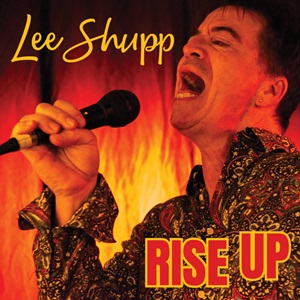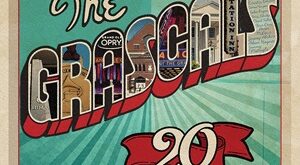
Lee Shupp’s Rise Up has an exhortative quality befitting the album title. The eight energetic performances he’s written for this collection have varying textures while engaging listeners with gut-level immediacy. These are songs about flesh and blood life lived, not ideas or cliches, and he crouches them in everyday language that his target audience will understand. It’s the latest superlative turn for a San Francisco music veteran with voluminous experience as a live player and recording artist. Shupp commands the listener’s attention with passion and skill in equal measure. Each of Rise Up’s eight songs unequivocally proves that he has abundant melodic gifts that the years have yet to exhaust.
INSTAGRAM: https://www.instagram.com/leeshuppmusic/
Even the harder-edged fare shows melodic tendencies. The album begins with “Here There Be Dragons” and inflamed slide guitar riffing contrasts well with the song’s wide swing. There are assorted melodic touches scattered throughout the song. The vocal melody has a straightforward infectious appeal. Piano adds graceful touches, as well, during the song’s bridge. The tasteful yet assertive dynamics propelling this song make it an excellent opener.
Inspired organ playing and slide guitar contributions make “Ride Tall in the Saddle” one of the liveliest cuts on Rise Up. The positive message underlying the lyrics is accepting life on life’s terms rather than viewing human affairs through rose-colored glasses. Shupp’s vocal arrangement reveals the San Francisco songwriter to be far more than an one-trick pony. Moreover, it layers the song with added merit rather than reducing it to an one-dimensional track.
Vocal excellence defines, in part, “One Step Ahead of the Sandman”. There’s no evidence of slide guitar during this song. However, the pop-rock influences heard from the performance should cast a wide net for potential listeners. The song’s emphatic chorus is another high point. “Elemental” dispenses with much of the predecessor’s pop influences in favor of a guitar rock attack. It’s a likable track, never abrasive, and there’s enough contrast between light and heavy that it’s certain to find favor with many listeners.
“Stay” has a striding rock sound complete with piano and understated color from its instrumentation. Shupp’s mid-tempo pace for the performance nevertheless generates palpable energy that helps propel the song. It’s easy to admire how Shupp disdains showy guitar theatrics despite being quite capable of lighting off six-string fireworks. Concluding the album with two acoustic-driven performances finishes Rise Up off in fine form. The better of the two tracks, “Going Home”, has a light hallucinatory vibe. However, the melody is never far from the surface, and Shupp’s performances make it clear that the track is close to his heart.
Rise Up has a lot to offer. The long and fruitful experience he brings to these recordings as a singer, musician, and songwriter makes them a cut above everyday fare. There’s nothing cookie-cutter about this endeavor. He shows an obvious investment in each performance, there’s no coasting, and the commitment underlying each cut makes the listening experience all the more meaningful. However, Lee Shupp hasn’t hit his peak. These are songs from a vigorous life. We’ll hear more from this talented artist.
Mark Druery
 IndieShark Music News, Reviews & Interviews
IndieShark Music News, Reviews & Interviews



